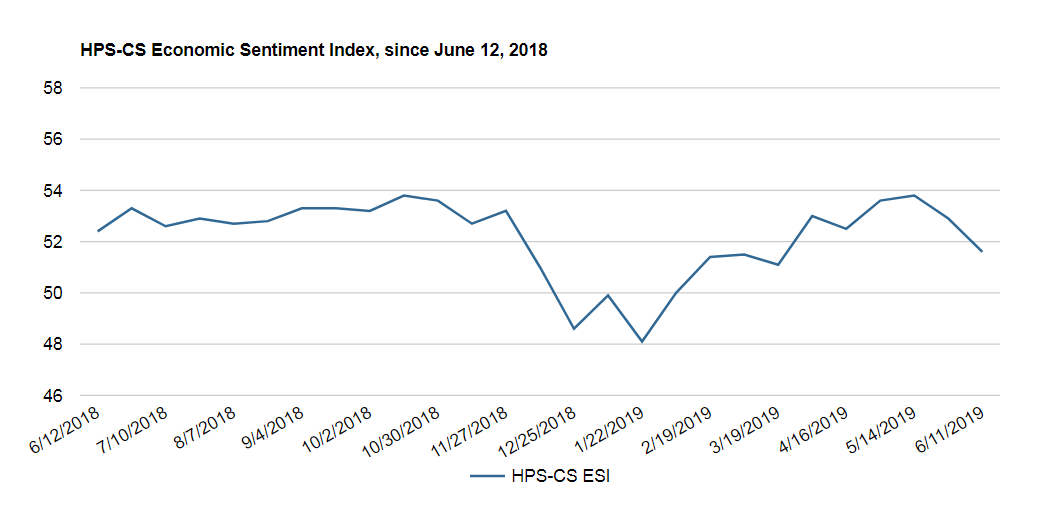The HPS-CivicScience Economic Sentiment Index (“ESI”) is a “living” index that measures U.S. adults’ expectations for the economy going forward, as well as their feelings about current conditions for major purchases. The primary goal of the Index is to accurately measure movements in overall national economic sentiment and to provide a more sophisticated alternative to existing economic sentiment indices. Unlike other prominent indices that release consumer sentiment estimates infrequently, the HPS-CivicScience Index is updated in real time as responses are collected continuously every hour, every day. Large-scale cross-tabulation of survey responses and consumer attributes enable more granular analyses than are currently possible through prevailing measures.
Excerpt From the Latest Reading:
Consumer confidence continued to decline over the past two weeks, according to the HPS-CivicScience Economic Sentiment Index (ESI). Following a 0.9-point drop at the end of May, the ESI declined by 1.3 points to 51.6 points over the past two weeks, the largest drop this year. The decline brings the ESI to its lowest reading since March.
Four of the ESI’s five indicators decreased during the reading. Consumer confidence in the labor market experienced the largest drop, declining by 3.7 points to 44.4 – its lowest point since January of this year. Economic sentiment toward the broader U.S. economy and personal finances also dropped, decreasing by 1.5 and 1.2 points, respectively. Sentiment toward the broader economy is at its lowest point since February of this year. Confidence in making a major purchase also declined by 0.3 points. Meanwhile, economic sentiment toward the housing market was the lone indicator to improve, rising 0.3 points to 49.8.
The decline in consumer confidence comes as the Bureau of Labor Statistics’ May jobs report came in under expectations, with just 75,000 jobs added to the U.S. economy. The report followed data from payroll processor ADP that shows private employers added 27,000 private-sector jobs during May, the lowest number since 2010.









